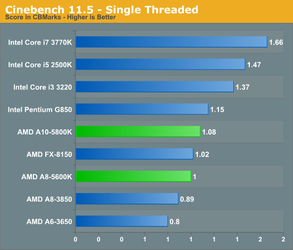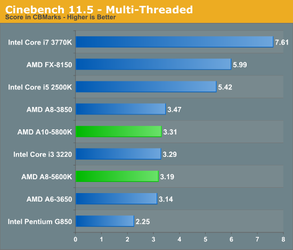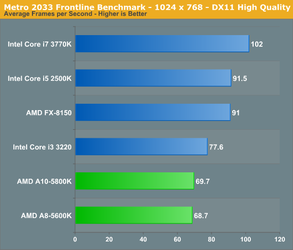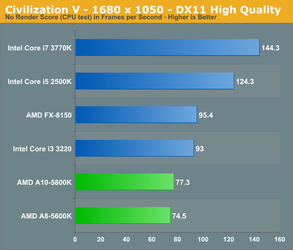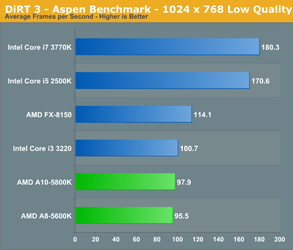hah... didn't mean to start this argument. No, Boulard83, I know that the a10 is limited. I'm well aware that even a moderately OC'ed i5-2500 or... well pretty much any "k" series offering from intel will walk away from a trinity. I also know that the A10 isn't an ideal hardcore gaming platform.
The confusion here is because I never linked my
original thread on this topic, as i didn't really see the point. However if you
see how this idea was formed, I'm sure you might start to understand a bit.
your advice is good advice, particularly since I did say i wanted "eye-bleeding" graphic. In general, unless I am talking about an FX-8350, the only chips you'll talk that way about are intel offerings. Part of my motivation with this build is the technical challenge to squeeze as much as I can out of this build. Since coming to this board I've been impressed with all of the information and well informed community members here. Frankly, I've probably saved thousands of dollars in blind testing with all the information in your heads.
I also have seen a weird culture i didn't expect. Generally the "best" performance has become more of a goal around here. I remember getting into overclocking 20-25 years ago because no one in their right mind bought a $1000 CPU when you could overclock a $200 CPU to match it. It wasn't about buying a $1000 CPU and seeing how high I could overclock it.
My mindset is about the same now... though the price-range is different. The best performing CPUs (in general) all are clustered around 200-300 now. Sure you can get slightly better cpus for more money, but in general the change in performance is so little there is almost no point.
So this makes me wonder "what can I do with a cheaper and by all accounts 'inferior' chip?" That I need a new pc only makes it much more interesting to me. Hence this topic.
Now then, back on topic. In short, the architecture in general surrounding the FM2 socket is so new, they're still working out the kinks. That almost makes me lean toward ASUS, as I know once these issues are worked out, they'll give the best support to help me get a stable OC. Even if they aren't there now. I get now why there is almost no info on this platform. Didn't even occur to me the "age" factor. Of course i've seen a number of reports that seems to indicate that ASUS quality isn't the same as it used to be, which troubles me too.
